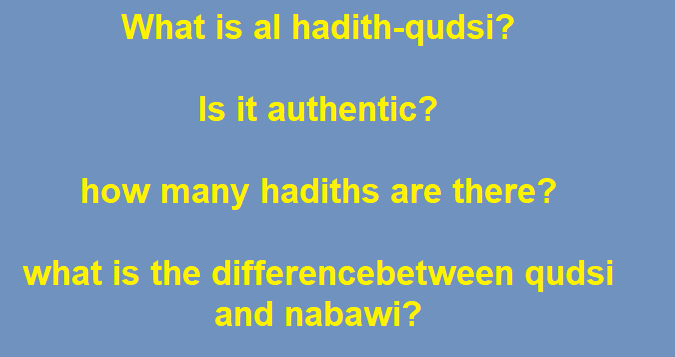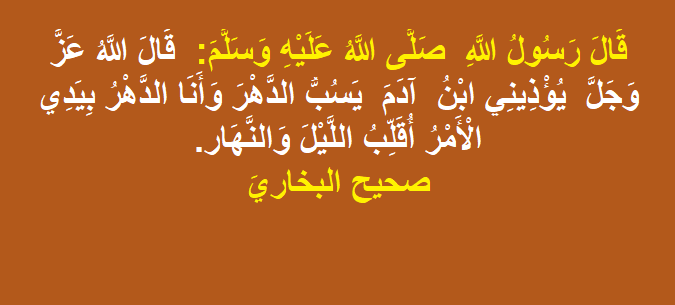Islam is every Muslim’s guide of life. Essentially, it is composed of two fundamental sources of religious law: the Quran, which is the Islamic holy book, and Hadith, known as the sacred narration. This latter consists of two types: Prophetic Hadith (Nabawi) and Hadith Al-Qudsi.

What is Hadith Al-Qudsi?
First of all, what does the word Hadith mean? In Arabic it simply means “to occur”. As to Hadith in the Islamic realm, it refers to a variety of deeds and sayings uttered and performed by the prophet (pbuh). Muslims rely on these sacred narrations as a secondary source of religious law.
The word Al-Qudsi is derived from the Arabic word “Quds” which translates to holy or sacred. Therefore, Hadith al-Qudsi is a type of Hadith that refers to sayings which Prophet Muhammed (pbuh) declared that Allah had revealed to him while conveying them to his Companions. These sayings are not included in the Quran nonetheless for they are worded by the prophet himself and not Allah.
For instance, on the authority of Abu Hurayrah (may Allah be pleased with him), who said that the Messenger of Allah (pbuh) said:
“Allah said: Sons of Adam inveigh against [the vicissitudes of] Time, and I am Time, in My hand is the night and the day (1). (1) As the Almighty is the Ordainer of all things, to inveigh against misfortunes that are part of Time is tantamount to inveighing against Him”. It was related by al-Bukhari (also by Muslim).

How many Hadith Al- Qudsi are there?
Despite the large number of regular hadith, there are only 40 Hadith Al- Qudsi.
Is Hadith Al- Qudsi authentic?
Contrary to the Quran, which is undoubtedly authentic, not all Ahadith Qudsiyyah (plural of Hadith Al- Qudsi) are. As there was no written documentation of Ahadith at that time, every narration from the prophet (pbuh) must be thoroughly studied by scholars. They must examine each narration to ensure that it does not contradict the facts stated in the Quran and authentic Ahadith so that they can conclude whether it is authentic or not. Hence, not all Ahadith Qudsiyyah are authentic.
What distinguishes a Hadith Al-Qudsi from a regular Hadith or Quran?
A Hadith Al-Qudsi is a narration of a saying made by the Prophet Muhammad (pbuh), in which he attributes the saying to Allah. The regular Hadith, known as a Hadith Nabawi, is a narration of the Prophet’s words, deeds, or events that occurred in his presence which he approved by one of the Companions. In other words, Hadith Al- Qudsi in terms of content is Allah’s while in terms of language it is Prophet Muhammed’s. Hadith Nabawi in contrast is the prophet’s both in terms of content and language.
Now, if both the Quran and Hadith Al-Qudsi are from Allah then what makes the difference between the two? Scholars agreed upon these 5 differences:
- Allah is the source of words and meaning when it comes to Quran. Hadith Al- Qudsi however is Allah’s message/meaning with the prophet’s wording.
- Angel Jibreel revealed the Quran, whereas Hadith Al- Qudsi might have drawn inspiration from other sources, such as a vision or a dream.
- The Hadith Al- Qudsi’s words are not miraculous or unique (mu’jizah), however the words of the Quran are.
- While the Hadith Al- Qudsi cannot be recited in official prayers (Salah), the Quran can.
- Despite the fact that one is not permitted to touch the Quran in the state of Janabah (post-sexual impurity), there is no similar prohibition against touching the books of Hadith Al- Qudsi.
- For more information read: questions and answers about the Quran
As Hadith is the secondary source of Islamic law and morality, all Muslims must adhere to its teachings. Whether a Hadith is Qudsi or Nabawi, it is always a gain and never a loss to learn from it and use it to our benefit seeking guidance and happiness in life.

Jazaakumullaahu khairan
Am grateful to ALLAAHU for enabling me pass through this content, may He bless u all with knowledge